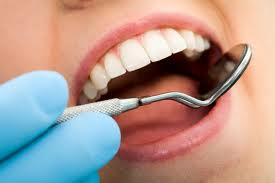“Heads Up” patient information
Introduction: who I am
I am part of the multidisciplinary team for patients diagnosed with a head and neck cancer. As part of your cancer treatment you may be offered surgery, chemotherapy, radiotherapy or a combination of these. It is important that you see a dental specialist, like me, to have your teeth examined prior to starting treatment. Even those of you with dentures should have the opportunity to have a dental assessment. The reason that you should see a dental specialist is because the chemotherapy, radiotherapy and surgery will have lasting effects on your mouth and teeth; this will vary in extent with individual patients. It is important that your mouth is as healthy as possible during your treatment to avoid any dental complications that may interrupt or cause problems during your cancer treatment.
Complications that can arise from chemo or radiotherapy are varied and include mucositis (which is inflammation of the lining of your mouth), loss of taste, dryness, stiffening of your chewing muscles, increased risk of tooth decay, gum diseases and fungal infections. A long term side effect that can occur after radiotherapy is a condition called ostoeradionecrosis or ORN for short. Radiotherapy can affect wound healing by affecting the blood supply to areas in the radiotherapy beam field. Therefore if a tooth or teeth needs to be extracted after radiotherapy, there is a risk that the socket may not heal properly and you may require further treatment to manage this. This occurs more commonly in teeth extracted from the lower jaw. This condition can also occur in patients who have poorly fitting dentures that can rub and traumatise your gums. Hence, the importance of having a dental assessment.
When you see the dental specialist before your cancer treatment, you will have a full dental examination and possibly some x-rays taken in order to assess the health of your teeth and gums. Treatment in the form of simple fillings, smoothing of a denture or a tooth extraction may be required. You should also see your own dental hygienist or one of our dedicated dental hygienists to ensure that your mouth care is optimal. Teeth that have an uncertain or poor prognosis are recommended for extraction to reduce the risk of ORN post treatment.
During and after your cancer treatment it is important to keep your mouth as healthy as possible. I often prescribe a high fluoride toothpaste that cannot be bought over the counter as well as daily fluoride mouthwashes. Sometimes during treatment your mouth can become painful to brush in which case I would recommend a soft toothbrush or a dampened gauze swab to gently clean your teeth and gums. If it is too painful for even this, then tooth brushing should stop until your mouth becomes more comfortable.
After completion of your cancer treatment, you should maintain regular visits with the dental team particularly with the hygienist. The side effects of our cancer treatment can last a long time and sometimes for ever. The dental team want to help you with these and reduce the chances of you developing any problems. At this time we would also discuss rehabilitation of your mouth if necessary. This may involve provision of dentures and bridgework or using dental implants to help retain false teeth if deemed appropriate.
In general I would regard the following as a good practical guide to maintaining a healthy mouth;
- Toothbrushing 2-3 times per day using fluoride toothpaste
- Consider a fluoride mouthwash or gel daily
- Watch your diet. Often due to taste loss patients over sweeten foods which can lead to tooth decay, particularly in patients who have a dry mouth. Saliva has a protective effect on your teeth and gums and when this is reduced following radiotherapy, a sugary diet can lead to significant tooth decay.
- Use sugar free chewing gum to try and stimulate your saliva glands.
- Frequent sips of water, not juice (not even fruit juices) are often the best way to keep your mouth moistened. Artificial saliva substitutes are available but often patients prefer water.
- Clean your dentures twice a day as they can act as a reservoir for fungal infections.
I hope this has given you useful insight into why you are asked to see the dentist before embarking on your treatment. Please ask me or my colleagues any questions about your mouth and treatment when you see us.
